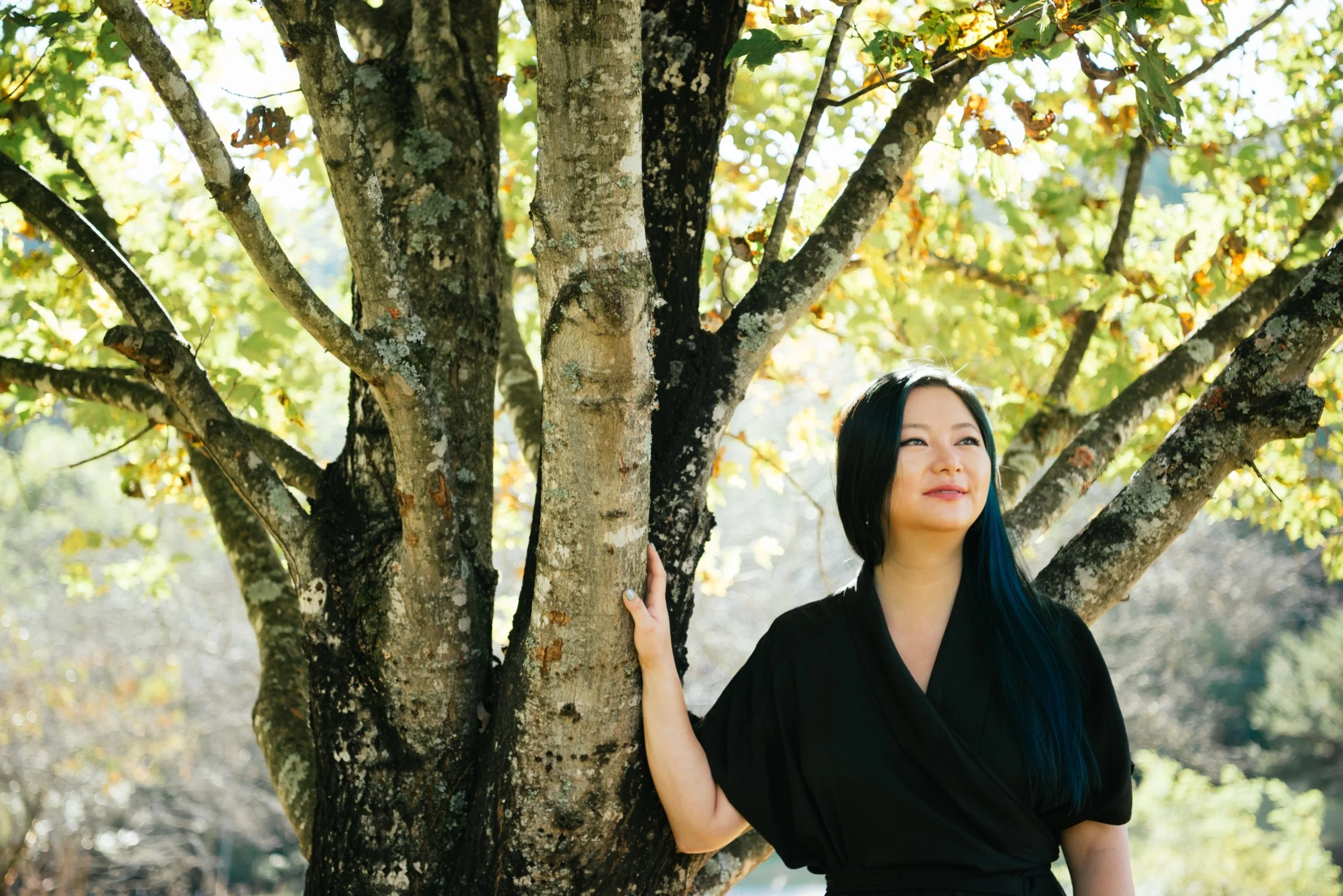Pianist Vicky Chow finds freedom in “therapeutic” Philip Glass Études
Acclaimed Brooklyn-based musician returns to perform Book 2 of the composer’s works for solo piano in Music on Main concert on May 28
Pianist Vicky Chow. Photo by Kaitlin Jane Photography
Music on Main presents Vicky Chow plays Philip Glass Piano Études Book 2 at Christ Church Cathedral on May 28 at 7:30 pm
AS A GIFTED young pianist taking lessons at the Vancouver Academy of Music, Vicky Chow never imagined a career performing music by living, breathing composers—not because it didn’t appeal to her, but because the option had simply never been presented to her.
“When I was eight years old, I was like, ‘I'm going to go to Juilliard.’ I wanted to be a [classical] soloist or perform concertos with orchestras,” the musician, who returns to Vancouver to perform Philip Glass’s Études Book 2 with Music on Main, shares during a Zoom call with Stir from her home in Brooklyn.
True to her childhood dream, Chow did, indeed, end up at the esteemed performing arts conservatory—only to find herself unfulfilled by the path she had laid out for herself. “Once I got to Juilliard, I really started questioning it. I was a little bit lost,” she recalls. “Everyone I knew, we were all working on the same repertoire, you know?…And I was getting a little bit bored with the repertoire also: like, ’Oh, is this it? Is that all?’”
Chow’s musical horizons suddenly expanded when a fellow Juilliard student, composer Zhou Tian, asked her to fill in at the last-minute for a performance of his work—and there was no going back.
“I fell in love with it, just opening up the score and seeing this whole, completely new musical style that I'd never seen before,” she recounts. “I am a person that likes to discover new things and then figure things out, you know? And that's what I really like about new music—just getting the score and you don't know what it sounds like. You don't know what it is, perhaps there's notation or directions, and it's like, ‘Okay, I have to figure this out from scratch.’ I'm not trying to replicate something that I've heard a hundred times or that there's, like, a hundred recordings of.”
When it comes to the Glass études, Chow says she relishes the sense of freedom the works provide her.
“I wanted to kind of go back to just playing the piano acoustically,” she explains. “Being a contemporary pianist, I did a lot of stuff with electronics or stuff with preparations and extended techniques [that] required me to wear a click track or something…. This music allowed me to have to go back to the more romantic kind of style of playing….It was very therapeutic for me, actually.”
She notes that she spent several years, up until the pandemic, touring Tristan Perich’s hourlong Surface Image, for piano and 40 1-bit electronics, which she describes as “like running a marathon, but you can't slow down”. Glass offered her a welcome respite. “Being able to play these pieces, these gems, which are short, five-minute pieces and they're all very different little musical styles…was a nice contrast to the type of work that I was performing so rigorously.”
Chow brought Book 1 of the études to Vancouver last spring, also with Music on Main. In Book 2, she says, Glass enters a more intricate realm.
“Book 1, I feel, is definitely, kind of more straightforward. The structures of the pieces, harmonically speaking, are also more predictable. Book 2 kind of takes on a darker kind of theme. I think the music is much more cinematic in feel. The harmonic changes are more complex. The structure is more complex. There is [one] where, literally, like three-quarters of the way, it breaks out into completely new material that you didn't hear earlier in the piece. It’s surprising. I think there are a lot of unpredictable twists and turns in Book 2.”
As she did last year, Chow will be performing in a church, rather than a traditional concert hall.
“I love church acoustics,” she says. “I also think there’s something a little bit less clinical about it, unlike being on a concert stage. There’s something more welcoming—there’s less of a divide between me and the audience. I’m a little bit closer to the audience, and they can be closer to the music.”
“And I think the music is very accessible. It’s very accessible for amateurs or younger musicians, but it also contains challenges for a professional pianist,” she continues. “I think that's why it's becoming really a staple in the piano canon. There's many people who play this music, just like many people play Chopin or Beethoven.”
It’s worth noting that, at one time, those long-dead composers were creating the new music of their time. “Exactly!” Chow agrees. “Like, when Bach was the church organist or the church music director, he was writing his music every week, that was his day job, you know? And every week you got to go and hear his music for the first time. That was all new, and now it's old music. So yeah, what we're doing, what I'm doing, it's a continuation of classical music. It's really not a separate thing.”
Driving that point home, Chow reveals that, while she solely performs new music repertoire, she does still keep one piece of the old world in her pocket. “There is a Bach prelude that I play almost every time I sit down at the piano wherever I go, just to warm up and try out the acoustics and the piano,” she shares. “So, you know, I have held onto some pieces of repertoire from my past that I do play for myself….It was like the last Bach that I worked on before I moved to New York. So I've held onto that for the last 20 years.”
![]()














